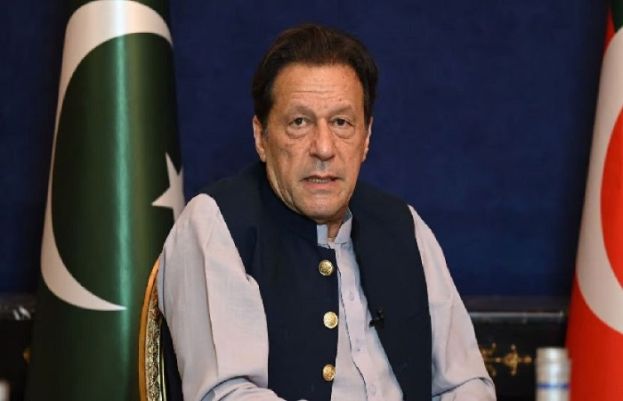PTI Chairman Imran Khan was indicted in the Toshakhana case on Wednesday, a day after he was arrested by the National Accountability Bureau (NAB) from the Islamabad High Court (IHC) premises in connection with the Al-Qadir Trust case.
Separately, an accountability court reserved its verdict on the NAB’s plea seeking 14-day remand of the PTI chairman. Both the hearings were held at the Islamabad Police Lines, which was given the status of a court venue as a “one-time dispensation” late on Monday night, amid tight security.
Additional and District Sessions Judge Humayun Dilawar presided over the hearing concerning the Toshakhana case.
The Election Commission of Pakistan (ECP) had sought proceedings under the criminal law against the PTI chief. The ECP had approached the court on the matter on a reference filed by lawmakers from the ruling coalition last year.
The reference alleges that Imran had “deliberately concealed” details of the gifts he retained from the Toshaskhana — a repository where presents handed to government officials from foreign officials are kept — during his time as the prime minister and proceeds from their reported sales.
Meanwhile, the accountability court reserved its verdict on the graft watchdog’s request for Imran’s 14-day remand. Judge Mohammad Bashir presided over the hearing.
The PTI chairman’s lawyer, Khawaja Harris, opposed the request and said that the case did not fall within the bureau’s ambit. He further said that NAB had not shared the inquiry report either.
“Everyone has the right to a fair trial,” he said, calling for the hearing to be held in an open court. He further said a building had been constructed on the land belonging to Al-Qadir Trust, where people receive education free of cost.
He said that a “legal person”, who is not a public office holder, is meant to be in charge of the trust. Imran is no longer a public office holder, he said.
Meanwhile, the NAB prosecutor told the court that Imran was shown the warrant at the time of his arrest. He also assured Imran’s lawyer that the necessary documentation would be provided.
“This is a corruption case which the UK’s National Crime Agency has probed,” he said, adding that the money received was meant to be transferred to the government of Pakistan.
“Instead of the government, the funds that were received were transferred to Bahria Town,” he said.
On the other hand, the PTI chief contradicted NAB’s version and told the court that he was shown the arrest warrant when he was taken to the bureau’s office and not at the time of his arrest.
“I haven’t gone to the washroom in 24 hours,” he told the court, adding that he wanted his physician, Dr Faisal, to be called in. “I don’t want what happened to Maqsoo chaprasi (peon) to happen to me,” he said, referring to one of the people involved in the Ramazan Sugar Mills case who died in UAE last year.
“They inject you and the person dies slowly,” he alleged.
The court then reserved its verdict.
PTI Chairman Imran Khan indicted in Toshakhana case

